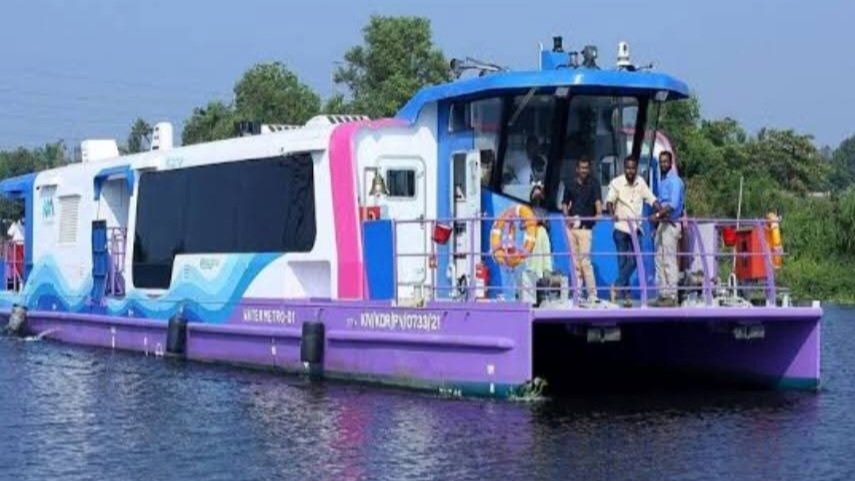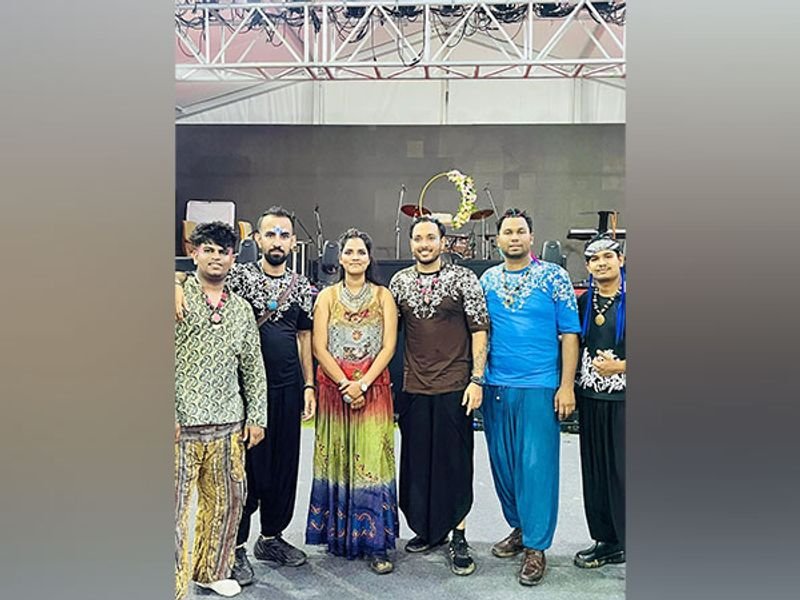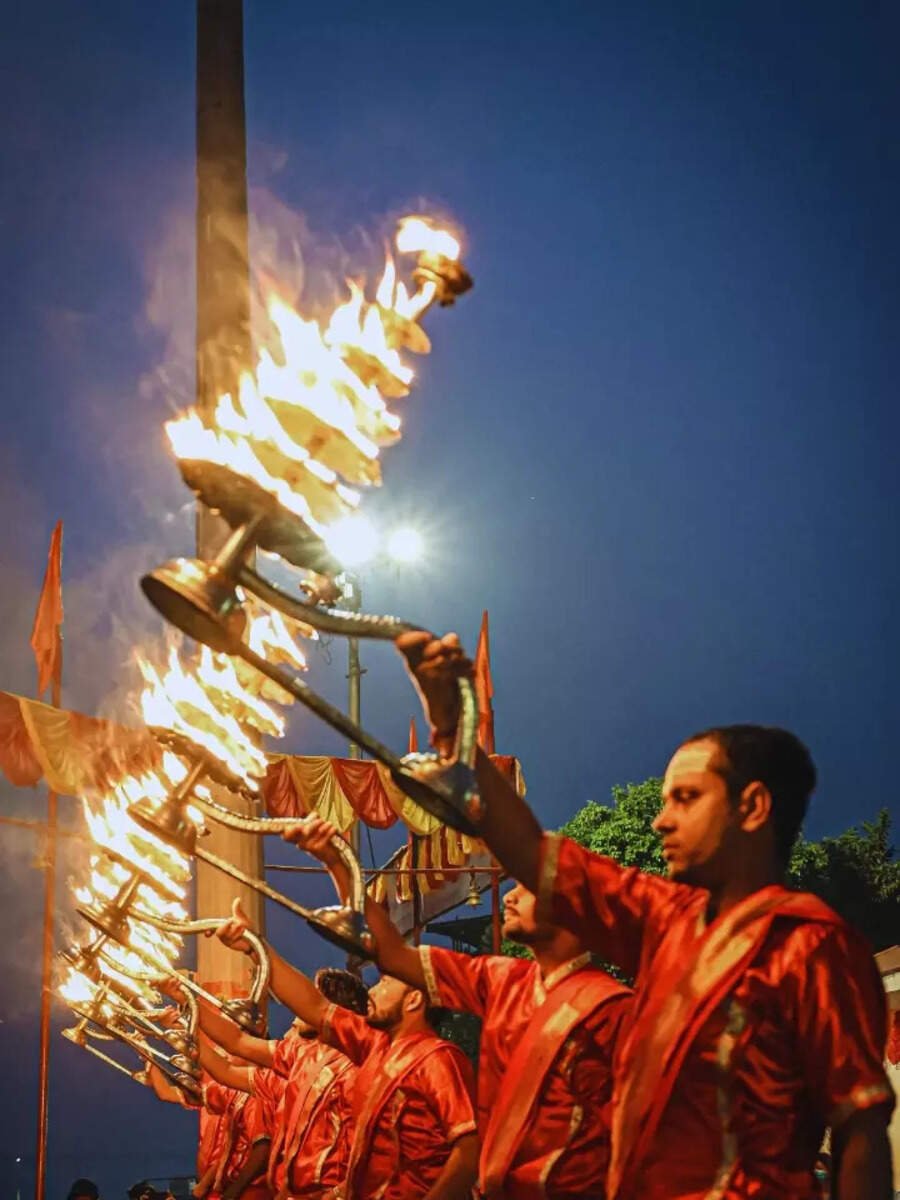Spiritual Travel
Government establishes first-ever satellite passport office at Hajj Village to expedite pilgrim travel

By Hannah Dadzie
In a groundbreaking move to streamline passport acquisition for Ghanaian Muslims embarking on the 2025 Hajj pilgrimage, the Ministry of Foreign Affairs has set up a satellite passport office at the Hajj Village in Accra.
The initiative, hailed as historic, aims to eliminate bureaucratic bottlenecks, ensuring that prospective pilgrims receive their passports within a maximum of three days.
Speaking at the Hajj Village, the Minister of Foreign Affairs, Samuel Okudzeto Ablakwa, said the process had long been fraught with frustration, delays, and exploitation by middlemen, popularly known as ‘Goro boys’, highlighting the government’s commitment to reforming passport administration in Ghana.
“We have set a target; within a maximum of three working days, applicants will receive their passports. Some may even receive them within 24 to 48 hours, but no one will wait beyond 72 hours,” the Foreign Affairs Minister assured.
The newly established satellite passport office at the Hajj Village will offer a seamless, all-in-one service, eliminating the need for applicants to visit multiple locations. National security, immigration, and other relevant agencies will be stationed on-site to verify and process applications, ensuring that qualified applicants receive their passports swiftly.
To extend these services beyond the capital, dedicated Hajj booths have been set up in other regions. This ensures that pilgrims across the country benefit from the expedited passport issuance without unnecessary travel and delays. Minister of Foreign Affairs, Samuel Okudzeto Ablakwa said this initiative aligns with a broader agenda to decentralise passport services, making them more accessible to various groups.
“Never in the history of the Hajj pilgrimage have we had passports issued at the Hajj Village, but today, history is being made. We are bringing convenience and efficiency to the doorstep of our Muslim brothers and sisters who are preparing to fulfill this important pillar of Islam. This is a game-changer that aligns with President John Dramani Mahama’s vision of a reformed and efficient passport system,” Mr Ablakwa indicated.
In a significant policy shift, the expedited service, which would typically cost GHS 700 and above, will be available at the standard passport fee of GHS 500. The Minister warned against unauthorised intermediaries charging additional fees, urging applicants to make payments directly through official channels.
“Ordinarily for expedited service, you pay GHS 700 and above, but for this exercise we are carrying out at the Hajj Village and all our passport application centres for our Muslim brothers and sisters, we’ve decided to charge the ordinary fees of GHS 500. I’m deliberately announcing this caution to those who will meet people and charge extra fees,” the Minister noted.
Chairman of the interim Hajj Taskforce, Alhaji Collins Dauda, expressed gratitude for the initiative, calling it a “blessing to the Muslim community”. He recounted past struggles pilgrims faced in acquiring passports, including long queues, delays, and physical exhaustion.
“In previous years, some pilgrims collapsed at passport offices due to stress, frustration, and delays. With this intervention, acquiring a passport will be as convenient as doing it from home. We can only be grateful to President Mahama for this initiative. As Muslims, we are expecting happiness,” Alhaji Dauda said.
With an estimated 5,000 Ghanaian pilgrims expected to travel to Mecca for the 2025 Hajj, the initiative is set to significantly ease the process, ensuring timely passport issuance in line with Saudi authorities’ deadlines.
As the government continues its Reset Ghana agenda, the minister reaffirmed the commitment to eliminating inefficiencies and enhancing service delivery across all sectors.
“We are here to serve you, to cut out frustration, and to make sure you get what you need without unnecessary stress. Charity begins at home, and we will continue to challenge ourselves to provide the best services for Ghanaians,” Mr Ablakwa said.
The satellite passport office at the Hajj Village will operate until the March 13 payment deadline, with a possibility of extension based on demand.
Related
Spiritual Travel
Bilaspur Set to Transform into Himachal’s Ultimate Adventure and Spiritual Hub

Move over, Manali and Shimla! Bilaspur is gearing up to become the state’s next big tourism hotspot, blending adrenaline-pumping adventures with serene spiritual experiences. The district administration has rolled out ambitious plans to develop water, land, and aerial tourism, promising something for thrill-seekers, pilgrims, and nature lovers alike.
A Sky-High Attraction: The Glass Bridge
Imagine walking on a transparent bridge, suspended high above breathtaking landscapes—Bilaspur’s upcoming Glass Bridge at Bharari will do just that! Designed to rival global attractions, this engineering marvel will offer daredevils an unforgettable experience while giving tourists a reason to extend their stay. Officials confirm the blueprint is ready, and construction will kick off soon after final approvals.
Sailing Through Scenic Routes: The Water Metro
Pilgrims visiting Maa Naina Devi will soon have a faster, more scenic journey thanks to the proposed Water Metro, connecting Bhakra Ghat to Kosariya Ghat. This isn’t just about convenience—it’s about turning travel into an experience. Devotees and tourists can hop on boats, enjoy the tranquil waters, and even transport their vehicles via waterways.
Jet Skis, Kayaking & More: Water Sports at Nakrana
Bhakra Dam’s pristine waters are about to get a lot more exciting! The district is eyeing water sports like jet skiing, kayaking, and boating to attract adventure junkies. The best part? Pilgrims heading to Naina Devi can now add a splash of adventure to their spiritual trip.
Bharari – The New Stopover Destination
Strategically located near Shimla, Manali, and Dharamshala, Bharari will soon feature modern tourist hubs with food plazas, parking, rest areas, and info centers. No more cramped pit stops—just smooth, comfortable breaks for travelers.
Listening to Locals: Boaters Get a Voice
Deputy Commissioner Rahul Kumar made sure local boat operators were heard during inspections, promising quick fixes to their concerns. This people-first approach ensures tourism growth benefits everyone.
Bilaspur’s transformation isn’t just about flashy infrastructure—it’s about jobs for youth, better travel experiences, and putting this hidden gem on India’s tourism radar. With projects set to launch soon, the district is poised to become a must-visit for those seeking adventure, spirituality, and untouched natural beauty.
Spiritual Travel
Shiva Tribe Debuts in Gurgaon’s Tikli-Raiseena: IMPC’s Bold Step to Merge Spirituality, Rural Tourism, and Modern Family Wellness

VMPL
New Delhi [India], August 4: In the lush rural landscape of Tikli-Raiseena near Gurgaon, a new chapter in India’s spiritual and rural tourism ecosystem quietly unfolded. The International Mandir Prabandhak Committee (IMPC) launched its ambitious spiritual wellness initiative–Shiva Tribe–an experience-driven, immersive space designed to reconnect Gen Z and modern families with India’s timeless spiritual roots.
Set against the tranquil backdrop of Haryana’s Aravalli fringes, Shiva Tribe is more than a mandir–it is a curated journey of self-discovery, holistic wellness, and cultural revival, seamlessly merging ancient wisdom with modern aspirations. The inaugural three-day Pran Pratishtha Mahotsav was held in July, graced by spiritual luminaries including Pujya Shri Sudhanshu Ji Maharaj, Pujya Shri Dayanand Ji Maharaj, and dignitaries such as Haryana’s former Minister Shri Om Prakash Dhankar. Business leaders, rural development advocates, and spiritual patrons attended in significant numbers–signaling a rising interest in faith-based tourism models.
Spiritual Tourism: India’s Growing Wellness Sector
India’s spiritual tourism market is undergoing a silent revolution. According to the Ministry of Tourism, the wellness and spiritual tourism segment is projected to reach USD 30 billion by 2028, growing at a CAGR of over 10%. With over 330 million domestic religious tourists recorded annually and rising international interest in authentic Indian experiences, initiatives like Shiva Tribe have the potential to create high-value, low-impact tourism models in rural belts–generating employment, fostering entrepreneurship, and revitalizing local economies.
“In today’s fragmented lifestyle, families are searching for meaningful escapes–not just vacations. Shiva Tribe is that sacred pause–a place to reconnect, reflect, and realign, together,” said Dr. Preet Sandhuu, mentor of the project and a key voice in India’s contemporary spiritual movement.
A New Blueprint: Spirituality Meets Community Living
Unlike traditional spiritual centers, Shiva Tribe offers a complete spiritual-eco retreat–including weekend live devotional music by its in-house ‘Shiva Tribe Band’, yoga sessions, mantra-infused meditations, Vedic rituals, and stay facilities for families. It’s a full-circle experience designed to inspire urban youth and families alike to step into a more conscious, value-driven lifestyle.
“Here, spirituality is not a sermon–it’s an experience,” said Shri MP Singh, project visionary and founder of ShivaTribe. “We want to build a network of such community-driven centers across rural India, using temple heritage as a catalyst for rural rejuvenation and youth engagement.”
Rural Regeneration Through Faith
The Tikli model aligns with India’s rural tourism policy goals by transforming underexplored rural regions into mindful tourism destinations. With over 60% of India’s population residing in villages, initiatives like this leverage India’s spiritual capital to promote rural entrepreneurship, handicrafts, organic farming, and ecotourism–creating a sustainable rural economy rooted in culture and community.
IMPC’s Broader Mission
The International Mandir Prabandhak Committee (IMPC), known for initiatives like the Mahasangam Yatra, Trisul Yatra and Shiv-Shakti Kendras, is rapidly becoming a bridge between India’s ancient temple traditions and its digital future. Its work focuses on temple modernization, spiritual leadership development, and community revival–backed by collaborations with scholars, saints, and civic leaders.
By anchoring the Shiva Tribe initiative in Tikli, IMPC demonstrates how faith-based community models can attract tourism, foster economic inclusion, and support national goals like ‘Viksit Bharat’ and ‘Digital Bharat’.
Shared by
(ADVERTORIAL DISCLAIMER: The above press release has been provided by VMPL. ANI will not be responsible in any way for the content of the same)
(This content is sourced from a syndicated feed and is published as received. The Tribune assumes no responsibility or liability for its accuracy, completeness, or content.)
Spiritual Travel
10 oldest temple towns in India for spiritual getaways – The Times of India

10 oldest temple towns in India for spiritual getaways The Times of India
Source link
-

 Brand Stories2 weeks ago
Brand Stories2 weeks agoBloom Hotels: A Modern Vision of Hospitality Redefining Travel
-

 Brand Stories1 week ago
Brand Stories1 week agoCheQin.ai sets a new standard for hotel booking with its AI capabilities: empowering travellers to bargain, choose the best, and book with clarity.
-

 Destinations & Things To Do2 weeks ago
Destinations & Things To Do2 weeks agoUntouched Destinations: Stunning Hidden Gems You Must Visit
-

 Destinations & Things To Do1 week ago
Destinations & Things To Do1 week agoThis Hidden Beach in India Glows at Night-But Only in One Secret Season
-

 AI in Travel2 weeks ago
AI in Travel2 weeks agoAI Travel Revolution: Must-Have Guide to the Best Experience
-

 Brand Stories1 month ago
Brand Stories1 month agoVoice AI Startup ElevenLabs Plans to Add Hubs Around the World
-

 Brand Stories3 weeks ago
Brand Stories3 weeks agoHow Elon Musk’s rogue Grok chatbot became a cautionary AI tale
-

 Asia Travel Pulse1 month ago
Asia Travel Pulse1 month agoLooking For Adventure In Asia? Here Are 7 Epic Destinations You Need To Experience At Least Once – Zee News
-

 AI in Travel1 month ago
AI in Travel1 month ago‘Will AI take my job?’ A trip to a Beijing fortune-telling bar to see what lies ahead | China
-

 Brand Stories2 weeks ago
Brand Stories2 weeks agoContactless Hospitality: Why Remote Management Technology Is Key to Seamless Guest Experiences
